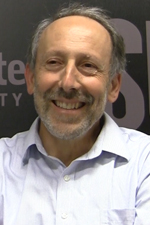Abstract

“An Engineer Without Borders”
August 25, 2015
Location: Valley Library, Oregon State University. Watch Video | Download Transcript (PDF)
In the interview, Selker discusses his family background and upbringing, including his mother's story as a Holocaust survivor and his own early interest in bicycle touring. He likewise recounts his boyhood interests in engineering, his early departure from high school in favor of Reed College, his academic progression as an undergraduate, and his summer work at the Stanford Linear Accelerator. Selker next describes his first contacts with Oregon State University, where he worked for one year as a campus-based employee of the U.S. Department of Agriculture. He then outlines his travels and work experiences in Africa that inspired him to return to school at Cornell University and study agricultural engineering, with a focus on water resources.
From there, the session turns its attention to Selker's years as a faculty member at Oregon State. He recalls the circumstances by which he returned to OSU, the state of the Bioresource Engineering department at the time of his arrival, colleagues within the unit who proved influential, and trends in the university's culture that he has observed over time. He also reflects on the evolution of his approach to teaching, shares his memories of setting up his research laboratory, and describes an early project that he led at the Hanford Nuclear Site. In further discussing his research, Selker shares details of studies that he has conducted in Chile and the Dead Sea, as well as his work capturing hydrology data using fiber optics.
As the interview nears its conclusion, Selker details the formation, implementation and potential impact of the Trans-African Hydro and Meteorological Observatory initiative. He also shares his thoughts on the future of water in a warming planetary environment. The session ends with Selker providing his sense of the university's current direction as it approaches its sesquicentennial.

